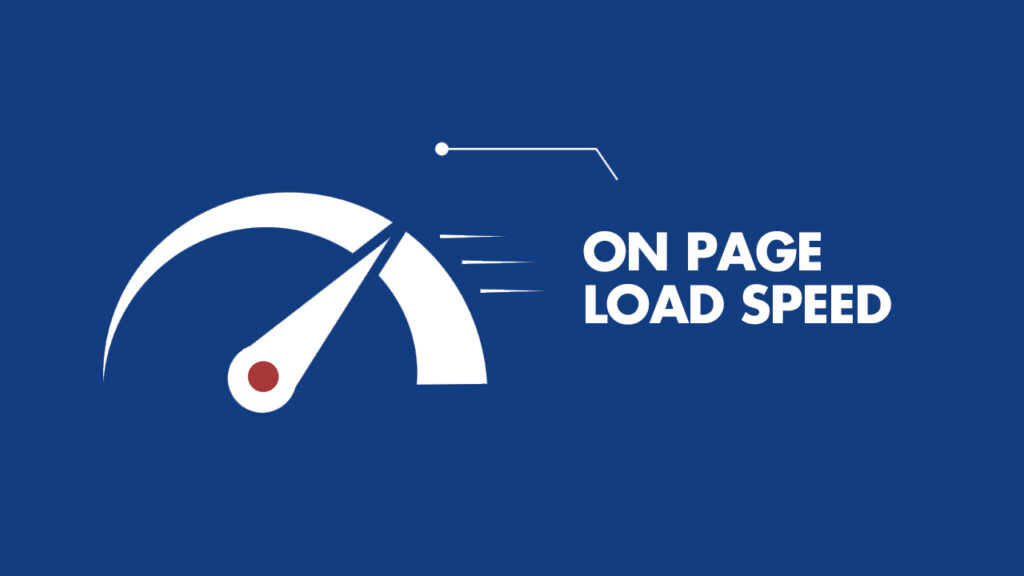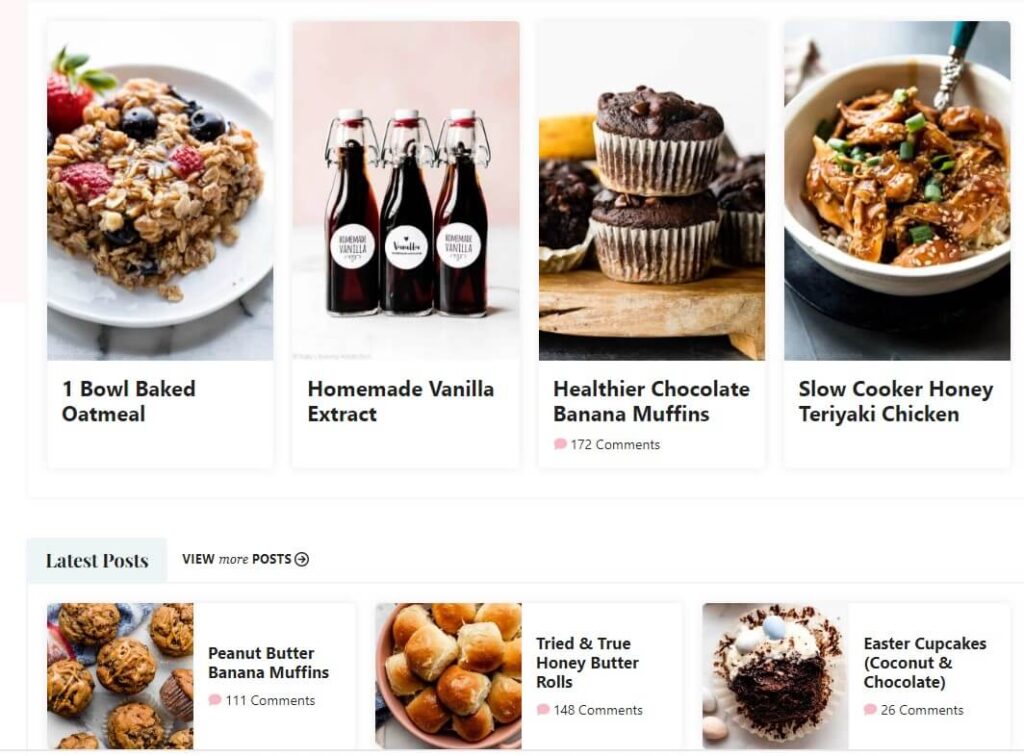search engine optimization for WordPress web sites, often known as search engine marketing (search engine optimization), can assist enhance the visibility and rating of the web site in search engine outcomes pages (SERPs).
Listed here are some greatest practices for optimizing a WordPress web site for search engines like google:

1. Select a responsive and mobile-friendly WordPress theme
It is very important have an internet site that’s straightforward to make use of and navigate on all units, together with smartphones and tablets. Google provides desire to web sites which might be mobile-friendly in its search outcomes. That is referred to as mobile-first indexing.
Some greatest practices for optimizing an internet site for mobile-first indexing:
- Present a mobile-friendly web site. In case you haven’t already, create a mobile-friendly web site so your customers visiting your website by a cell phone can have a stellar expertise.
- Ensure that Google can entry and render your content material.
- Ensure that the content material is similar on desktop and cell. Even with the equal content material, variations in DOM or format between desktop and cell pages can lead to Google understanding the content material in a different way. Nevertheless, having the identical content material on the desktop and cell variations ensures that the 2 variations can rank for a similar key phrases.
- Examine your structured information: In case you have structured information in your website, be sure that it’s current on each variations of your website.
- Examine visible content material. Ensure that the pictures in your cell website comply with the picture greatest practices.
- Examine your movies. Ensure that the movies in your cell website comply with the video greatest practices.
You possibly can examine our assortment of area of interest WordPress themes, all of that are responsive and mobile-friendly.
2. Take note of Evergreen Content material
Evergreen content material is a sort of content material that continues to be related and helpful over an prolonged interval, fairly than changing into outdated or irrelevant quickly after it’s printed.
Examples of evergreen content material embrace:
- How-to guides and tutorials: A majority of these content material present step-by-step directions on learn how to do one thing, and so they have a tendency to stay related for a very long time as a result of the fundamental steps and rules concerned are unlikely to alter.
- Definition and rationalization articles: Articles that present definitions and explanations of ideas and matters are more likely to stay related over time as a result of the definitions and explanations are unlikely to alter considerably.
- Lists: Lists are a well-liked format for evergreen content material as a result of they supply a concise and easy-to-read overview of a subject.
- Business analysis and information: Analysis and data-driven articles are sometimes evergreen as a result of the info and findings are unlikely to alter considerably over time.
- Historic articles: Historic articles will also be thought of evergreen as a result of they supply details about occasions and other people which might be unlikely to alter over time.
Generally, evergreen content material is beneficial for search engine optimization as a result of it could possibly proceed to draw site visitors and search engine rankings for an prolonged interval, making it a priceless asset for any web site.
3. Use search engine optimization plugins
There are various search engine optimization plugins obtainable for WordPress that may assist optimize the web site for search engines like google. These plugins assist you to simply add and edit web page titles and meta descriptions, in addition to analyze the content material for search engine optimization.
I’ve beforehand reviewed and ranked the Prime 5 search engine optimization Plugins for WordPress. In case you’re beginning a brand new WordPress web site then it’s best to think about all obtainable choices.
4. Use descriptive and related web page titles and meta descriptions
The web page title and meta description are the textual content that seems within the search outcomes for a specific web page. Ensure that to make use of descriptive and related titles and descriptions that precisely replicate the content material of the web page and embrace related key phrases in your content material.
Use distinctive titles and descriptions for every web page: Every web page on an internet site ought to have a novel and related title and meta description to precisely replicate the content material of the web page and assist search engines like google perceive the context of the web page.
5. Keep away from key phrase cannibalization
Key phrase cannibalization is a scenario by which a number of pages on an internet site are competing for a similar or related key phrases, leading to a dilution of the web site’s search engine rankings for these key phrases.
This may occur when an internet site has a number of pages focusing on the identical or related key phrases, or when completely different pages on the web site use the identical or related titles and meta descriptions.
In case you suspect that your web site could also be affected by key phrase cannibalization, you possibly can revise the titles, meta descriptions, and content material of your primary pages to make sure that every web page is focusing on a novel and related set of key phrases.
6. Use header tags
Header tags, akin to H1 and H2 tags, assist to construction the content material on a webpage and make it simpler for search engines like google to know the hierarchy of the knowledge. Use header tags to interrupt up the content material into sections and sub-sections, and ensure to incorporate related key phrases within the header tags.
7. Use alt textual content for photos
Alt textual content is a textual content different for photos that’s displayed when the picture can’t be displayed. Alt textual content is vital for accessibility as a result of it offers a textual content different for photos that may be learn by display readers and different assistive applied sciences.
To make sure that alt textual content is efficient for accessibility and search engine optimization, you will need to use descriptive and related alt textual content that precisely describes the content material of the picture. Keep away from utilizing alt textual content that’s too lengthy or that merely repeats the file identify of the picture.
It is usually vital to make use of alt textual content for all photos, together with ornamental photos, to make sure that the webpage is totally accessible to all customers.
8. Use key phrase analysis
There are various completely different key phrase analysis instruments obtainable that may assist establish essentially the most related and common key phrases to focus on within the content material and meta tags of an internet site.
Some common key phrase analysis instruments embrace:
- Google Key phrase Planner: Google Key phrase Planner is a free software supplied by Google that permits customers to seek for and analyze key phrases. It offers information on the search quantity and competitors degree of key phrases, in addition to recommendations for associated key phrases.
- Ahrefs: Ahrefs is a paid key phrase analysis software that gives a variety of knowledge and options, together with search quantity and competitors information, key phrase recommendations, and knowledge on the efficiency of particular key phrases.
- SEMrush: SEMrush is one other free/paid key phrase analysis software that gives a variety of knowledge and options, together with search quantity and competitors information, key phrase recommendations, and knowledge on the efficiency of particular key phrases.
- Keywordtool.io: Keywordtool.io is a free key phrase analysis software that gives key phrase recommendations based mostly on a given seed key phrase. It additionally offers information on the search quantity of key phrases.
9. Use inner linking
Inside hyperlinks are hyperlinks that time from one web page on an internet site to a different web page on the identical web site.
Inside linking helps search engines like google perceive the construction and hierarchy of an internet site and may assist enhance the consumer expertise by making it simpler for guests to navigate the web site. Use related and descriptive anchor textual content for inner hyperlinks to assist search engines like google perceive the context of the linked web page.
Inside hyperlinks can assist in search engine optimization by:
- Offering a transparent hierarchy and construction for the web site: Inside hyperlinks assist search engines like google perceive the construction and hierarchy of an internet site, which may enhance the visibility and rating of the web site in search outcomes.
- Enhancing the consumer expertise: Inside hyperlinks can assist enhance the consumer expertise by making it simpler for customers to navigate the web site and discover associated content material.
- Passing hyperlink fairness: Hyperlink fairness is the worth that’s handed by hyperlinks to different pages on an internet site. Inside hyperlinks can assist distribute hyperlink fairness all through an internet site, which can assist enhance the visibility and rating of the web site in search outcomes.
10. Use exterior linking
Exterior linking, or linking to different web sites, can assist enhance the credibility and authority of an internet site within the eyes of search engines like google.
Exterior hyperlinks may be useful for search engine optimization for a number of causes:
- Exterior hyperlinks can assist show the credibility and authority of an internet site: By linking to respected and related sources, an internet site can present search engines like google that it’s a dependable supply of data and that it has a powerful understanding of the subject. This can assist enhance the visibility and rating of the web site in search outcomes.
- Exterior hyperlinks can assist enhance the consumer expertise: By linking to related and helpful sources, an internet site can present extra data and sources to its customers, which may enhance the general consumer expertise.
- Exterior hyperlinks can assist distribute hyperlink fairness: Hyperlink fairness is the worth that’s handed by hyperlinks to different pages. By linking to different web sites, an internet site can distribute a few of its hyperlink fairness to the linked web sites, which can assist enhance the visibility and rating of these web sites in search outcomes.
To maximise the advantages of exterior linking for search engine optimization, you will need to use descriptive and related anchor textual content for the hyperlinks and to hyperlink to respected and related sources.
It is usually vital to keep away from overusing exterior hyperlinks or linking to low-quality or spammy web sites, as this may damage the visibility and rating of the web site in search outcomes.
In Conclusion
By following these greatest practices, you possibly can assist enhance the search engine optimization of your WordPress web site and improve its visibility and rating in search engine outcomes pages.

